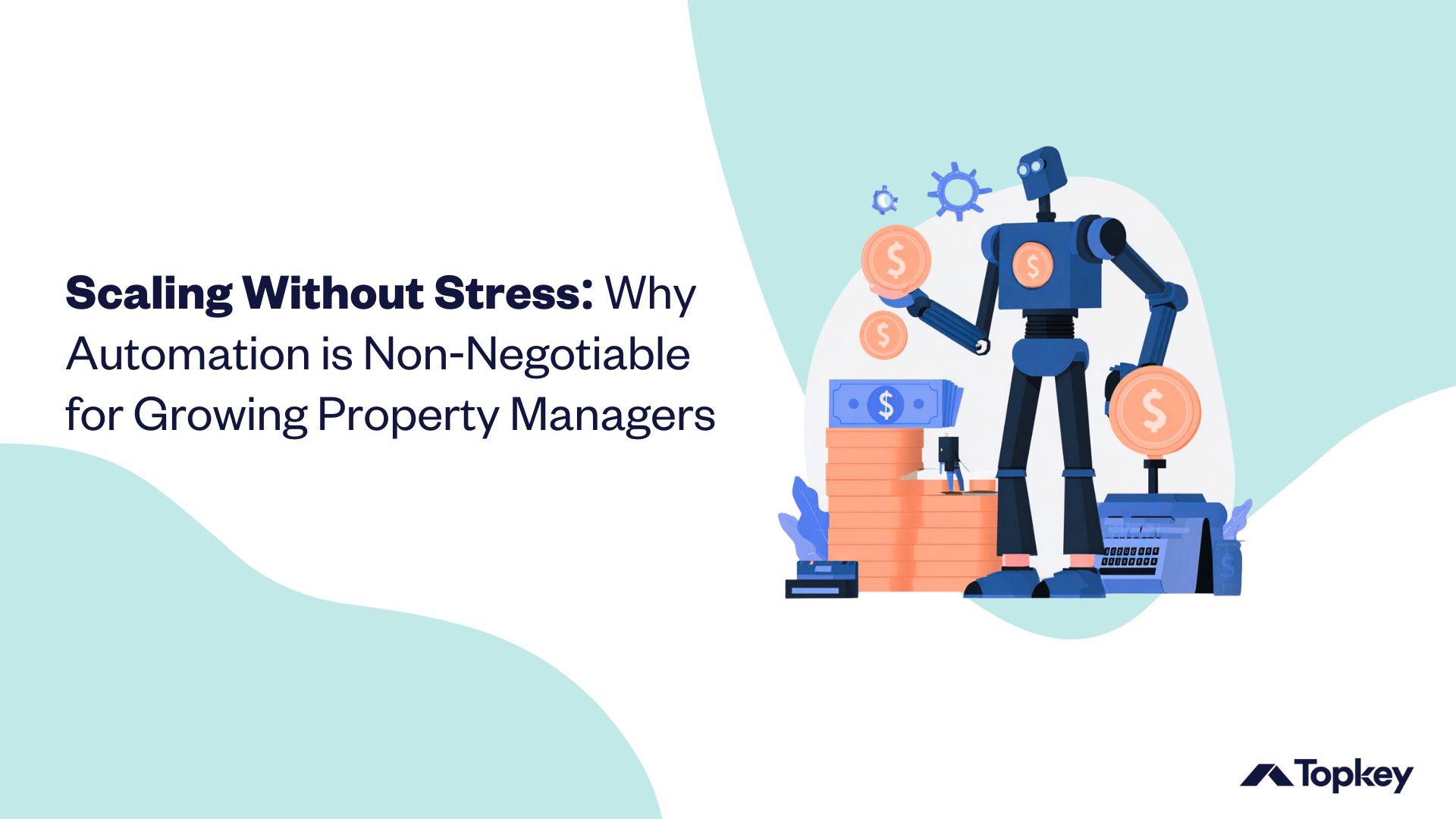
As a vacation rental property manager, growth is the goal. But what many don’t realize is that scaling your portfolio, adding new homes, taking on more owners, expanding into new markets, can quickly become a double-edged sword. The same manual systems that worked fine at five properties often become unmanageable at thirty.
This is why automation isn’t just a nice-to-have, it’s the only path to sustainable, scalable success.
Key Takeaways:
Manual Systems Break Early: Most property managers find manual accounting becomes a major bottleneck around the 10–15 property mark.
- The Costs Are High: Manual processes lead to missed billable expenses (costing thousands per month), inaccurate owner statements, and team burnout.
- Automation Is More Than Software: It's a system for real-time tracking, error-free reconciliation, and faster financial closing, giving you confidence in your numbers.
- You Can Start Small: Transitioning to automation doesn't have to be overwhelming. Start by tackling your biggest pain point, like expense tracking, and expand from there.
When Do Manual Accounting Systems Typically Break Down?
At Topkey, we’ve worked with hundreds of property managers who found themselves trapped in this growth paradox. Many of them told us the same thing: manual processes started falling apart around the 10–15 property mark, and by the time they reached 30, they were drowning in spreadsheets, receipts, and reconciliation headaches.
What was once a simple workflow turns into an operational bottleneck, costing you time, accuracy, and revenue.
What Are the True Costs of Manual Vacation Rental Accounting?
Financial Costs: Missed Revenue and Unreconciled Expenses
When you’re small, it’s tempting to handle everything manually. You download bank statements, log charges in spreadsheets, and file receipts in that dreaded shoebox. It’s time-consuming, but manageable, until it’s not.
As you grow, the number of financial touch points explodes. With every additional home comes a cascade of new expenses, approvals, and records. The cost of sticking with manual processes isn’t just measured in hours, it shows up as hard-dollar losses.
One Topkey customer shared that before automating, their team missed over $2,500 per month in billable expenses they should have passed on to owners. That’s $30,000 per year left on the table.
Operational Costs: Burnout and Inefficiency
There’s also the emotional cost. We’ve heard from managers who were spending nights and weekends catching up on bookkeeping. Month-end close stretched for weeks. Vendor relationships suffered due to late payments. What starts as a small operational issue quickly snowballs into a full-blown crisis, leading to team burnout.
The Numbers Don’t Lie: Time Saved, Errors Reduced
When property managers automate their financial workflows, the results are not just theoretical, they’re measurable.
One Topkey customer, Host & Home, manages a growing portfolio of vacation rentals and reported saving 25+ hours per month after switching from manual processes to Topkey’s automated system. Their team also eliminated between $5,000 and $10,000 in monthly expense leakage, thanks to better visibility and consistent owner billing. Most impressively, their monthly reconciliation process, which used to take 2–3 days, was reduced to just 30 minutes.
This is what automation looks like in the real world: faster month-end close, fewer missed charges, and more time for your team to focus on high-impact work instead of tedious, error-prone tasks.
It’s not just about saving time—it’s about reclaiming capacity to grow. With systems in place that handle the heavy lifting, you can confidently add new properties without hiring more people or risking burnout.
What Does Growth Look Like With vs. Without Automation?
Let’s look at a few scenarios to illustrate the difference.
Scenario 1: Scaling from 5 to 20 Units
- Manual: The cracks are showing. Your part-time bookkeeper is now full-time. You miss a few owner charges, eating $300-$500/month in costs. Month-end reports take two days instead of two hours.
- With Automation: Adding a property doesn’t double your workload. New expenses are automatically assigned. Reconciliation happens daily. Owner statements are generated in under an hour, clean and accurate.
Scenario 2: Growing from 10 to 50 Units
- Manual: Your systems completely break down. Your team is overwhelmed, and you’re considering hiring another bookkeeper just to keep up. You’re stressed about audit risk and tax season.
- With Automation: You stay lean. One finance team member can manage it all with the right systems. You confidently onboard new homes, knowing your operations won’t buckle.
Scenario 3: Expanding to 100+ Units
- Manual: This isn’t even an option anymore without MANY hours of labor from your team. If you haven’t switched, you're likely losing thousands of dollars a month and can’t produce reliable reports to make strategic decisions.
- With Automation: You’re operating like a top-tier manager. You’ve built a scalable, compliant, and efficient back office, freeing you to focus on strategic growth, not data entry.
How Can You Switch to Automation Without the Overwhelm?
Transitioning can feel intimidating, but it doesn’t have to be. Break it down into simple steps.
Step 1: Identify Your Biggest Bottlenecks
Start by pinpointing your single biggest source of pain. Are you spending too much time on bank reconciliation? Are you losing receipts from your maintenance team? Are owner payouts a monthly nightmare? Your biggest headache is the best place to start.
Step 2: Choose an Integrated Platform
Look for a platform like Topkey that connects the tools you already use. Seamless integration with your Property Management Software (PMS), your accounting software like QuickBooks Online, and your bank is critical. This ensures data flows automatically and eliminates duplicate work.
Step 3: Start Small and Scale Up
You don’t have to do it all at once. Many of our customers start with one core function, like expense tracking and receipt capture. Once that’s running smoothly, they add bill pay automation and trust accounting over time.
Frequently Asked Questions about Vacation Rental Accounting Automation
What’s the difference between my PMS and a dedicated accounting tool? Your PMS is fantastic for managing bookings, guest communication, and channel distribution. An accounting automation platform is purpose-built to handle the complex financial workflows behind those bookings: tracking expenses, paying vendors, managing owner funds, and ensuring every dollar is reconciled accurately.
How much does automation cost? Is there a positive ROI? While there is a cost to any software, the return on investment is significant. When you factor in the recovered revenue from missed billables, the hours saved on manual data entry, and the ability to scale without hiring more staff, automation almost always pays for itself many times over.
Can automation software integrate with my bank and QuickBooks? Yes. Modern platforms like Topkey are built to connect directly to your financial ecosystem. By syncing with your bank, credit cards, and accounting ledger like QuickBooks, they eliminate manual data entry, reduce errors, and provide a single source of truth for your finances.
Your Foundation for Sustainable Growth
At the end of the day, property managers don’t burn out because they don’t work hard enough, they burn out because their systems don’t scale with their ambition.
Manual accounting might get you started, but it will never get you to where you want to go. If you’re serious about growing your vacation rental business, automation isn’t optional. It’s the foundation that supports your future.
Still managing expenses in spreadsheets and chasing down receipts? Let’s fix that. Book a demo with Topkey today.
Topkey is a financial technology company and is not an FDIC-insured bank. Banking services provided by Thread Bank, Member FDIC.
See the Topkey difference.


